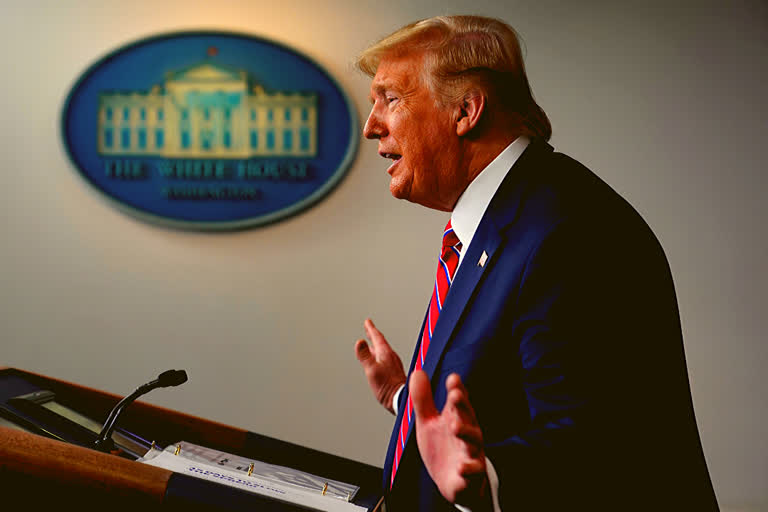Washington: After US President Donald Trump calling COVID-19 a "Chinese virus" and US secretary of state Mike Pompeo blaming China, Russia and Iran for spreading disinformation about new coronavirus, questions are now being raised over whether Beijing can be held legally accountable for covering up initial outbreak and clamping down on real information from being shared.
During a White House briefing on Friday Pompeo said the false information is coming from places like China and Russia and Iran where there are coordinated efforts to disparage what America is doing and our activity to do all the things President Trump has set in motion here.
Trump earlier said that it's unfortunate that the new coronavirus got out of control.
"It came from China, it got out of control. Some people are upset. I know President Xi. He loves China. He respects the United States and I have to say I respect China greatly and I respect President XI," he said.
According to a report, the communist superpower can be held legally accountable.
"An argument could be made that just like support for terrorism which is legally actionable, a government that engages in such reckless disregard and negligence and covers up an epidemic which has the potential to spread worldwide could be held legally liable," Nitsana Darshan-Leitner, an Israel-based attorney with a specialization in suing terrorist regimes and state sponsors who orchestrate human rights abuses on behalf of victims was quoted as saying in the report.
"Cover-ups and deliberate acts to conceal a deadly medical crisis are not among the protected acts of a sovereign state or of responsible leaders," the expert added.
"China is not to blame for creating the virus but for not sounding the international alarm and trying to conceal it from the world," she said.
The latest study by the University of South Hampton in the UK said China could have prevented 95 per cent of coronavirus infections if its measures to contain the outbreak had begun three weeks earlier.
"Coronavirus cases could have been reduced by 66 per cent if the measures were taken a week earlier, or by 86 per cent if action began two weeks earlier. If the action was taken three weeks later, then the situation could have worsened 18-fold," said the study.
According to a timeline, it was December 10 when China reported the first patient that started showing COVID-19 like symptoms.
